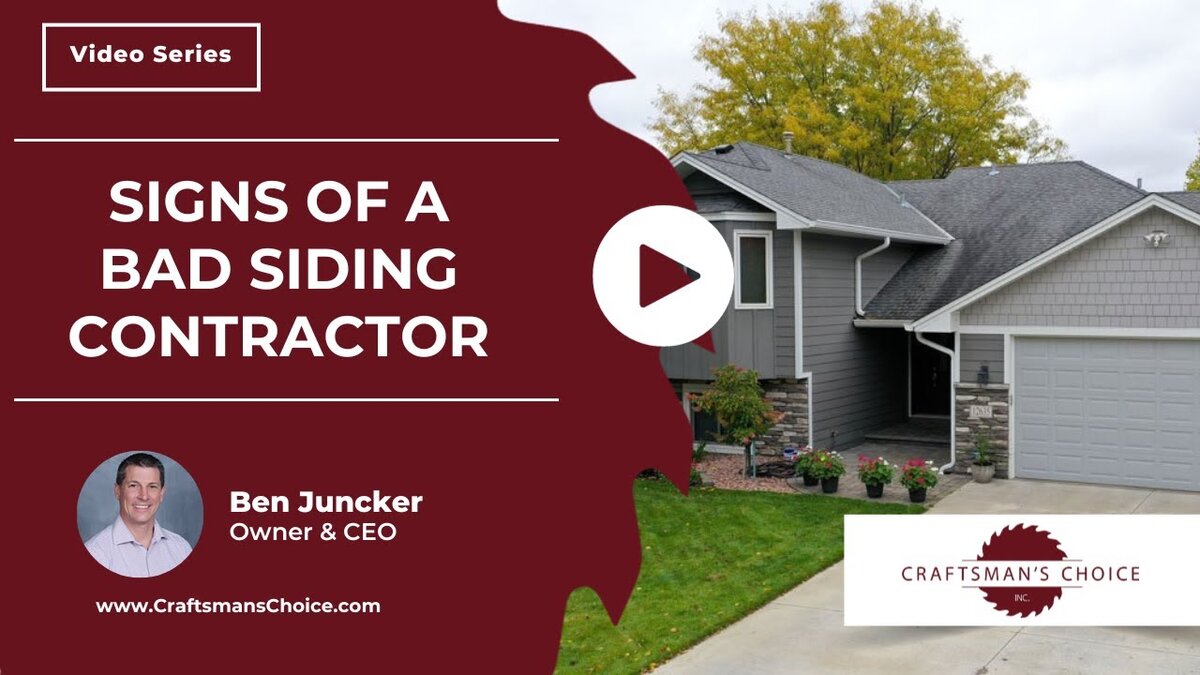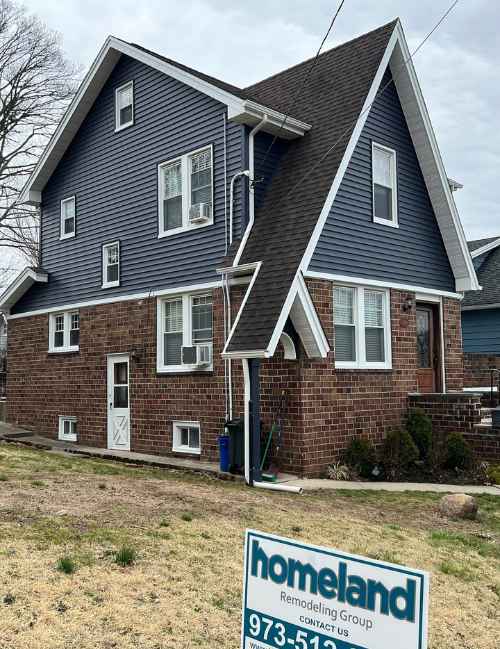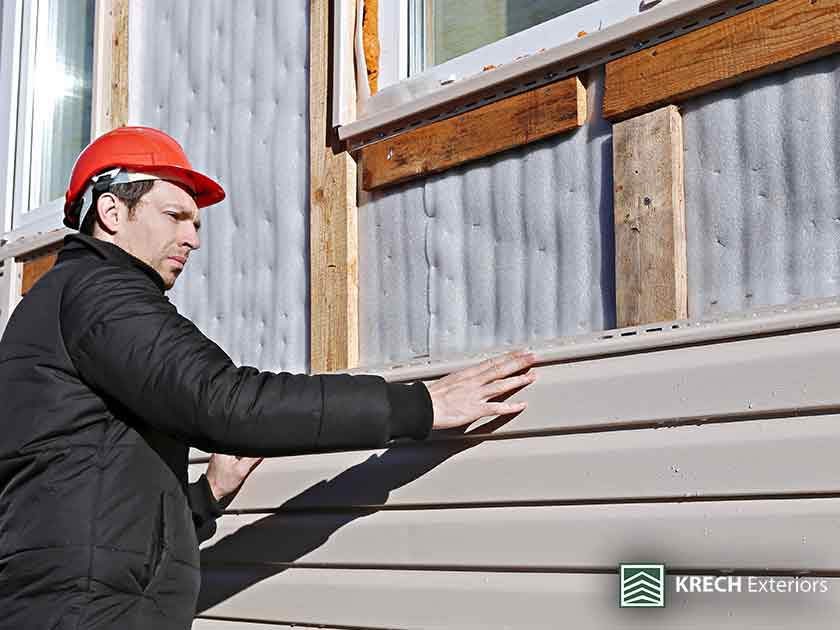Top-Rated Morris Siding Contractor Offering Expert Installation Services
Top-Rated Morris Siding Contractor Offering Expert Installation Services
Blog Article
The Crucial Guide to the Different Kinds Of Home Siding and Their Distinct Benefits
In the realm of home renovation, choosing the ideal exterior siding is a crucial decision that influences both visual appeal and practical performance. With so numerous alternatives to think about, which house siding material truly stands out for your particular project?
Timber House Siding
Timber house siding, a preferred choice for household exteriors, provides a classic aesthetic that incorporates natural charm with architectural stability. This home siding material is offered in various styles, consisting of clapboard, roof shingles, and board-and-batten, permitting house owners to personalize their appearance to match their design choices. Timber siding is usually crafted from resilient types such as cedar, redwood, or pine, which are recognized for their resilience and capability to stand up to ecological stress factors.
One of the main advantages of wood home siding is its superb insulation properties, which can contribute to power performance and lower home heating costs. Furthermore, wood home siding is biodegradable, making it an eco-friendly option when sourced sustainably. Normal upkeep, consisting of paint or discoloration, can prolong its life-span and improve its look, allowing home owners to preserve the all-natural appeal of the wood.
However, prospective drawbacks include vulnerability to pests, rot, and weather condition damage, requiring appropriate treatment and upkeep - morris siding contractor. Regardless of these issues, when effectively cared for, timber siding can give a long lasting and lovely solution that enhances the character of a home while offering a cozy, inviting atmosphere

Plastic Siding
Plastic exterior siding has become a leading option for property owners looking for a low-maintenance exterior option that incorporates durability and cost. This flexible material is crafted from polyvinyl chloride (PVC), making it immune to numerous weather, consisting of wetness and UV rays. Because of this, plastic house siding does not warp, rot, or discolor, making certain lasting visual appeal.
One of the main benefits of vinyl house siding is its considerable series of shades and designs, enabling house owners to achieve the wanted try to find their home without the demand for frequent repainting. Additionally, plastic siding is very easy to mount, which can dramatically decrease labor expenses during building or improvement projects.
Vinyl house siding also adds to energy performance. Many alternatives function insulation backing, which boosts thermal performance, assisting to preserve comfortable interior temperatures and possibly decreasing power bills. Additionally, its smooth surface assists in easy cleansing, needing only periodic cleaning with a yard tube to eliminate dirt and particles.
Fiber Cement Exterior Siding
Fiber cement exterior siding has gained grip amongst homeowners and building contractors alike because of its remarkable mix of longevity and aesthetic flexibility. Made up of a mix of cellulose, concrete, and sand fibers, this house siding alternative is engineered to stand up to severe climate condition, consisting of high winds, heavy rainfall, and temperature fluctuations, making it a long-lasting selection for domestic exteriors.

Among the primary advantages of fiber cement siding is its resistance to insects, such as termites, and its non-combustible nature, offering enhanced fire safety. morris siding contractor. Additionally, it is available in a wide array of designs, colors, and textures, permitting homeowners to accomplish their wanted visual without sacrificing efficiency
Another advantage is its low upkeep requirements; fiber concrete exterior siding usually requires paint or discoloration every 5-10 years, which is much less regular than other materials. Its longevity adds to a reduced overall cost of possession, as it lowers the need for frequent repair services or replacements.
Inevitably, fiber cement exterior siding stands for an excellent financial investment for those looking for a resilient, attractive, and versatile exterior choice, incorporating both type and feature to enhance the home's aesthetic appeal.
Steel Siding
The attraction of metal house siding depends on its durable resilience and contemporary visual charm, making it a favored option for modern style. Offered in materials such as aluminum and steel, steel exterior siding provides an array of colors and coatings, enabling property owners to accomplish an individualized look that complements their layout vision.

Energy performance is one more substantial benefit, as several metal siding items are designed with insulation alternatives that assist control interior temperature levels. This can bring about decreased power costs with time. In addition, steel exterior siding is typically recyclable, making it an eco-friendly option for sustainability-minded home owners.
The installment procedure for metal house siding can be reasonably simple, resulting in a quicker turnaround time for building tasks. Generally, steel house siding integrates capability and design, making it a useful option for those seeking a long-lasting and visually attractive exterior coating.
Brick and Stone Exterior Siding
Brick and rock house siding stands apart as a timeless choice that investigate this site improves the visual appeal of any type of home. Known for their sturdiness and reduced maintenance, these materials give an extraordinary roi while raising the home's aesthetic appeal. Offered in numerous shades, textures, and patterns, brick and stone can be tailored to fit varied architectural designs, from you can try these out standard to modern-day.
One of the key benefits of brick and rock siding is their power effectiveness. Both products possess all-natural shielding homes that aid control indoor temperatures, possibly reducing heating & cooling expenses. Furthermore, they supply superior fire resistance contrasted to other house siding options, adding to improved safety and security.
An additional advantage is their longevity. Brick and stone can last for decades, often needing minimal upkeep past occasional cleansing. Unlike timber home siding, they are unsusceptible pests and rot, making certain a long-lasting outside that endures the aspects.
Final Thought
In recap, the choice of home siding significantly influences a home's aesthetic appeal, energy efficiency, and upkeep needs. Each sort of home siding-- whether timber, vinyl, fiber cement, block, or steel and rock-- supplies one-of-a-kind advantages tailored to different homeowner preferences and ecological conditions. Recognizing these alternatives allows educated decisions that enhance both the resilience and visual beauty of household outsides. Inevitably, choosing the ideal exterior siding is necessary for achieving an equilibrium between performance and layout in household architecture.
One of the key advantages of wood siding is its superb insulation homes, which can contribute to energy effectiveness and reduced heating expenses. Additionally, wood exterior siding is naturally degradable, making it an ecologically pleasant alternative when look at this website sourced sustainably.One of the primary advantages of metal home siding is its resistance to various environmental variables.Power efficiency is one more significant benefit, as lots of steel siding products are designed with insulation alternatives that help control interior temperatures. Each type of home siding-- whether timber, vinyl, fiber block, cement, or steel and rock-- provides unique advantages customized to different home owner choices and environmental conditions.
Report this page